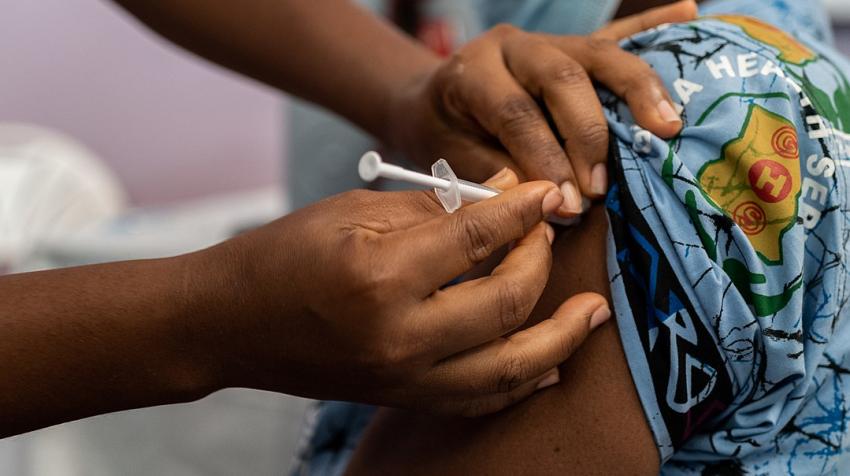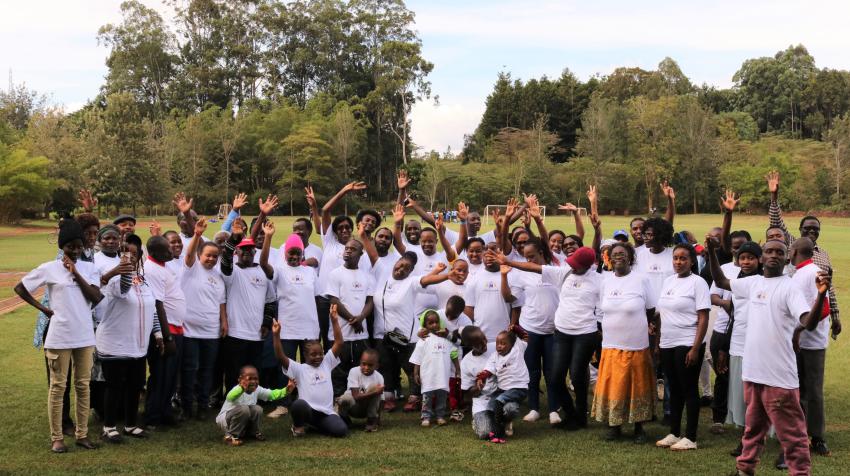20 February 2022
There is perhaps nothing worse we can say about a policy, society or institution than that it is unjust. But what are the criteria we use to judge something as unjust? Or, to put it another way, what is the conception of justice that guides us to point to something and say this is or is not exhibiting justice? And what is the required social response to something that is deemed unjust? While these are challenging questions that could be discussed in academic philosophy seminars, for more than two years now terms like “health justice”, “social justice” and “global justice” have appeared repeatedly in news stories and social media posts covering the COVID-19 pandemic. Even some politicians, policymakers and United Nations officials have used such words.
At the same time, it is worth noting that many individuals and institutions that have played central roles in shaping national and global pandemic responses have managed to never use the word “justice” and have largely skirted around related concepts such as rights, equity and fairness.
How can justice not but be central to our understanding of what everyone on this planet has been experiencing over the past two years? Every single person has been affected negatively, not least by the addition of a new risk to their health and possibly their life. We have seen catastrophic failures of many political and organizational leaders, of national and international institutions, as well as a current estimate of over 23 million pandemic-related excess deaths.
Instead of viewing COVID-19 as a tragedy or natural disaster, it is challenging but necessary to understand the pandemic as reflecting social injustice on a grand, global scale. Such understanding brings to the forefront the role of social actions and neglect in multiple dimensions of COVID-19, including the causes of the spread of disease, the levels and distribution patterns of harm within and across countries, the disparate experiences of illness, inequalities in treatment outcomes, non-health-related consequences, and more.
As many have already said, this pandemic is far from the worst infectious disease pandemic possible. Nevertheless, various social actions and neglect have resulted in millions of deaths and increased mental and physical suffering; placed disproportionate burdens on the poorest, on social minorities and on girls and women; worsened social inequality and divisiveness; erased of decades of progress in social development; fuelled corruption at epic levels, and more.
The recognition of the social injustices surrounding the pandemic is also an important opportunity to understand the longstanding links between health and social and global justice.
Health care justice
One globally recognized aspect of health injustice is limited access to health care, particularly COVID-19 vaccines. At present, more than 3 billion people have yet to receive their first vaccine dose, most of them living outside of high-income countries. In the poorest group of countries, only around 4 per cent are fully vaccinated. This disparity in vaccination levels is a direct result of the richest countries purchasing and hoarding more doses than they need. Yet aside from vaccines, from the earliest days of the pandemic there have been limited supplies of ventilators, personal protective equipment (PPE), oxygen tanks, hospital beds and therapeutics within and across countries. Some countries commandeered global supplies of such goods for the benefit of their own citizens.
In such an environment of scarcity, in many countries, those who could use their personal connections or afford to pay exorbitant fees were able to procure what they needed, while others could not. Even in countries where access to health care is assured, patients were prioritized according to crude criteria such as chronological age. That is, it was not the people who needed intensive care beds or certain drugs the most who received them, but those who were younger and healthier. Years from now, we will look back aghast at how our social actions and neglect allowed millions of older people and the most physically vulnerable in our societies to become sick and die.
Justice and determinants of disease and death
The outrage that fuelled the George Floyd protests in May 2020 was about the structural violence or injustices that Black people in the United States and worldwide endure and sometimes die from daily. There was also anger over the social injustices that are behind the spread of diseases such as COVID-19 and that drive Black and other minoritized people into hospitals for care. Those injustices are further compounded inside hospitals when those individuals are not prioritized for care because they are seen to not benefit as much as others due to their underlying health conditions. Then there is the real problem of racism in the provision of health care and financing, and increasingly in digital technologies and the associated algorithms that affect so many aspects of our lives.
The pandemic has increased recognition that our health is not just affected by domestic factors but is interrelated with the functioning of other societies and the health of other people near and far.
While some people may find it hard to recognize social injustice as a cause of disease and death, as a result of the COVID-19 pandemic, they may at least be able to recognize that protecting one’s health requires much more than traditional health care. Millions, if not billions of people worldwide have spent time at home during lockdowns to protect themselves from infection and potentially fatal illness. Being able to do so required that they had decent shelter, water and sanitation, electricity, phone and internet access, and money, among other things. Many governments ensured that public services continued to run and grocery stores were kept open, and even provided financial support to individuals and businesses. These conditions enabled individuals and families to avoid becoming sick, while the lack of such protections and support have led to millions of others becoming ill and dying during the pandemic. Unequal distribution of non-medical services and support during non-pandemic times drives health inequalities in our societies.
Global order and health
The pandemic has increased recognition that our health is not just affected by domestic factors but is interrelated with the functioning of other societies and the health of other people near and far. Ensuring that every person in every country has access to health care can indeed better protect everyone’s health. A more important and effective course of action, however, is to change the circumstances that drive new and preventable diseases and premature deaths. Such circumstances are profoundly shaped by our international order.
The current international order, which is made up of institutions, practices, norms and other elements, is simply not good for our health. The pandemic is a horrible illustration of how this order does not address the issue of health as a serious concern, or not as seriously as it deals with matters of security and finance. It is stuck with the nation State as the primary actor, with unequal power relations embedded in international organizations, while some non-State actors have become more powerful and have a greater influence on the health of populations than States.
And whether it is reflected in this pandemic, or in what has not been achieved in the Millennium Development Goals (MDGs) and so far in the Sustainable Development Goals (SDGs), our current global order is not up to the task of improving the conditions necessary for good health for most people of the world, especially the poorest and most vulnerable. In fact, as many who have studied globalization and health have pointed out, the current international order is actually impeding such efforts.
And yet we are also at a point where every national and global leader and bureaucrat can easily and personally appreciate the importance of health, access to health care, and the social conditions that drive disease as well as protect health. If a reasonable number of leaders recognized that every nation and the international community should work to create the circumstances that would enable everyone, not just the privileged few, to experience good health, this would be a remarkable outcome of the COVID-19 pandemic, and would help move us towards a more just world.
The UN Chronicle is not an official record. It is privileged to host senior United Nations officials as well as distinguished contributors from outside the United Nations system whose views are not necessarily those of the United Nations. Similarly, the boundaries and names shown, and the designations used, in maps or articles do not necessarily imply endorsement or acceptance by the United Nations.




